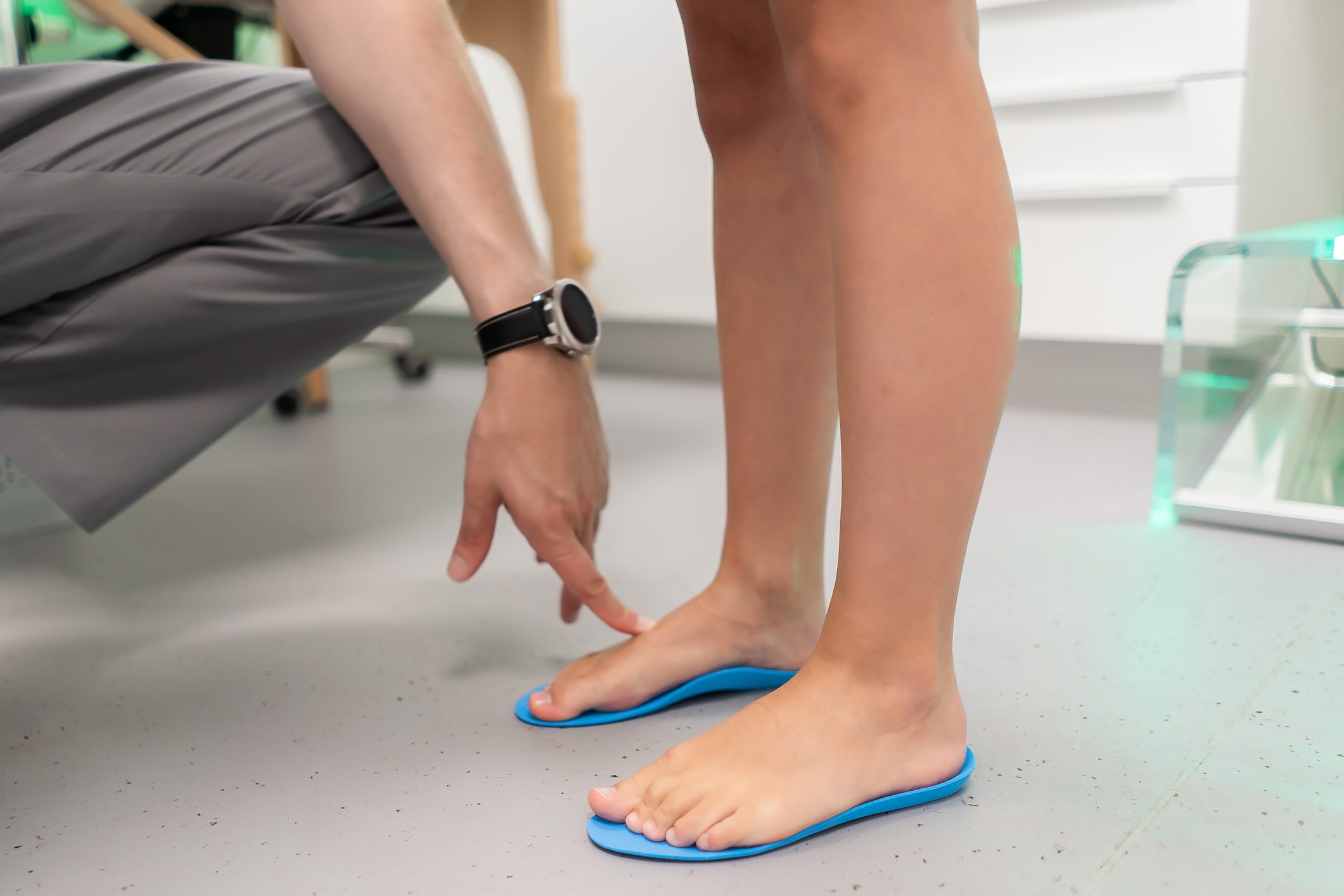Nail conditions might seem small, but they can turn into big headaches, especially when they make it painful to walk, wear shoes, or stay active.
If you’re dealing with thick nails, weird colors, or an ingrown toenail that won’t go away, there’s no reason to be ashamed. These issues are more common than most people think, and they don’t always clear up on their own.
At Lakes Foot & Ankle Associates in Commerce Township, we help people get real relief from stubborn toenail problems. Let’s walk through the most common conditions we treat and what you can do to take care of your toenails.
Common Toenail Problems We See in Our Office
1. Fungal Toenails (Onychomycosis)
Fungal nail infections can make your toenails thick, yellow, or crumbly. These usually start after your feet are exposed to moisture or bacteria—think gym showers, swimming pools, or sweaty socks that don’t dry out. Fungal nail issues are also highly contagious, so folks who spend time in locker rooms, communal changing rooms, or other public places are especially at risk.
What you might notice:
- Yellow, white, or brown nail color
- Thick or misshapen nails
- A brittle or crumbly texture
- A bad smell from the nail
Treatment options:
- Grade topicals and soaks
- Trimming or thinning the nail in-office
- Laser therapy for chronic fungal nail management and cases with high reinfection likelihood.
Fungal nails won’t clear up with home remedies or over-the-counter creams alone. And because of their highly contagious nature, you need a podiatrist who can take an “inside out” approach, keeping infections from spreading and helping patients to keep from reinfection themselves.
2. Ingrown Toenails
An ingrown toenail happens when the edge of the nail grows into the skin. This causes pain, swelling, and sometimes an infection. Tight shoes or cutting your toenails too short often make things worse.
What you might notice:
- Tenderness or redness near the nail
- Swelling along the sides
- Pus or drainage if it’s infected
Treatment options:
- Lifting or trimming the edge of the nail
- Antibiotics for infection
- A simple in-office procedure to remove part of the nail if it keeps coming back
In many cases, an ingrown toenail can be fixed quickly with a minor procedure, and most people feel immediate relief.
3. Toenail Injuries
Stubbed your toe? Dropped something on your foot? Repeated pressure from running or tight shoes? All of these can damage your toenails. Bruises, nail separation, or cracks are common after trauma.
What you might notice:
- Black or blue spots under the nail
- Pain or throbbing
- Part of the nail is lifting off/ nail thickening
Treatment options:
- Draining blood from under the nail if needed
- Removing damaged parts of the nail
- Watching for signs of infection or fungal growth
If the nail doesn’t grow back properly, we can help with options to keep it healthy and prevent long-term issues.
4. Thick Toenails
Thick nails can be tough to cut and uncomfortable in shoes. This condition is common as we get older and can be linked to injury, fungus, or conditions like psoriasis.
What you might notice:
- Hard nails that are difficult to trim
- Yellow or white discoloration
- Pressure or pain in shoes
Treatment options:
- Regular nail care and trimming at our office
- Topical solutions to help reshape the nail
- Addressing any underlying causes, like fungus or skin conditions
- Footwear advice to reduce pressure and pain
Trying to file or cut thick nails yourself can lead to injury or infection, so let one of our podiatrists handle it safely.
5. Discolored or Misshapen Nails
Sometimes nails change color or shape for no obvious reason. Discoloration can come from injuries, infections, or even certain health conditions. In rare cases, it may point to something more serious, like melanoma.
What you might notice:
- Nails that look white, black, green, or blue
- Grooves, dips, or changes in texture
- Pain, pressure, or tenderness
Treatment options:
- Testing for fungus or infection
- A nail biopsy, if needed
- Addressing the root cause—whether it’s trauma, infection, or another issue
Don’t ignore changes in your toenails. Getting checked early can help catch and treat problems before they get worse.
How to Keep Your Toenails Healthy
Most toenail problems are preventable with good habits. Here are a few easy ways to take care of your nails:
- Trim your nails straight across, not curved
- Wear shoes that fit well and give your toes room
- Dry your feet completely after showers or workouts
- Change your socks daily
- Use antifungal powder if you’re prone to sweaty feet or infections
- Avoid going barefoot in public locker rooms or pools
If something still seems off, don’t wait too long. Nail problems usually don’t go away on their own.
Why It’s a Good Idea to See a Podiatrist
It’s tempting to try to treat nail problems with drugstore creams, nail tools, or home remedies. While that might help a little, it often doesn’t solve the issue (and sometimes makes it worse.)
At Lakes Foot & Ankle, we treat nail conditions every day. Our podiatrists can:
- Figure out what’s really causing the problem
- Treat it in ways that work (and last)
- Offer procedures that are quick and done right here in the office
- Give tips to help you avoid future problems
- Offer alternative solutions to help you feel confident while you heal
You don’t need to live with pain or embarrassment. A quick visit can make a big difference in how your feet feel and look.
Find Relief from Nail Problems at Lakes Foot & Ankle
If you live in Commerce, Novi, West Bloomfield, or nearby areas and have toenail issues that won’t go away, we’re here to help. We can tackle anything from stubborn fungus, an ingrown nail, or a nail that’s just not healing right.
We make it easy to get back to walking without pain. Call us today to schedule an appointment and take care of your toenails the right way.



